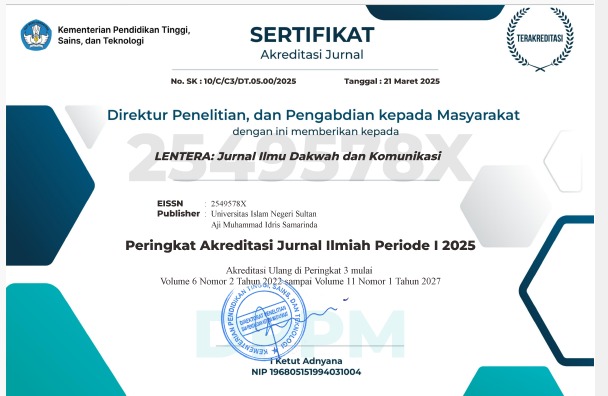MAIYAH MOCOPAT SYAFAAT DALAM PERSPEKTIF PSIKOLOGI
Abstract
Abstract: This article describes the mocopat Maiyah Intercession in Psychology perspective. Psychology viewpoint in this article from the perspective of the four major schools of psychology, namely: Psychoanalytic, Behavioristik, Humanistic and Transpersonal. Maiyah mocopat Intercession is a panel of scientific study that is a discussion (sinau together) or sharing on topics of humanity, which teaches the spirit of living with tolerance and live together in kindness contribution. Maiyah which means "togetherness" in the first sense: together everyone always with God. Secondly: wherever they are always with God. Third: do whatever it is always with God. Fourth: under any circumstances just be with God. In berMaiyah there are many grains of knowledge to be gained. Because of something that is considered good by someone not necessarily good for other people, then what happens in Maiyah not a pendoktrinan ideology, nor is it an authoritarian system, do not rely on one figure, but work together to find the truth of science, in other words, not looking for anyone true, but look for what is right. The truth that they will each take their own tests in their own lives. In the perspective of psychology, the basic assumption emha ainun nadjib figure can be analogized as a psychologist as well as other sources and pilgrims Maiyah is a participant. In the process, activity which was attended by a variety of people from different interdisciplinary backgrounds vary, making the research to get information are diverse, there are people who come to the enlightened life (curative) through counsel of spiritual and moral message will be full of wisdom values, there are set out to align the map of life (preventive) in the frame or in new ways, and those who set out to develop a level of insight into life (development) in memanagement memanagement self and external reality. In Psychoanalytic perspective Maiyah activity is seen as a form of how his attitude towards the reality of life (ego), how menjinakkkan human desires are not tertarah (id) to remain in the course of (superego). Behavior viewed from the standpoint of pilgrims Maiyah behaviors that tend to gather together transmit sciences with each other. In the Humanist perspective view of human nature to always seek the truth and make themselves as "human freedom" for all the problems of life. Transpersonal Perspective're looking at that berMaiyah means: a person's tendency to anytime, anywhere, by anyone and in any case, always be a "man", which constantly unite yourself with the Divine (Ma`iyatullah).
Copyright (c) 2018 LENTERA: Jurnal Ilmu Dakwah dan Komunikasi

This work is licensed under a Creative Commons Attribution-ShareAlike 4.0 International License.
Penulis yang menerbitkan artikel di Lentera: Jurnal Ilmu Dakwah dan Komunikasi setuju dengan ketentuan berikut:
- Penulis memiliki hak cipta artikel dan memberikan hak jurnal untuk publikasi pertama dengan karya yang secara simultan dilisensikan di bawah CC-BY-SA atau The Creative Commons Attribution – ShareAlike Licence.
- Penulis dapat membuat perjanjian kontrak tambahan yang terpisah untuk distribusi non-eksklusif versi jurnal yang diterbitkan dari karya tersebut (misalnya, mempostingnya ke repositori institusional atau menerbitkannya dalam sebuah buku), dengan pengakuan atas publikasi awalnya di jurnal ini.
- Penulis diizinkan dan didorong untuk memposting pekerjaan mereka secara online (misalnya, dalam repositori institusional atau di situs web mereka) sebelum dan selama proses pengajuan, karena dapat menyebabkan pertukaran yang produktif, serta kutipan yang lebih awal dan lebih besar dari karya yang diterbitkan (Lihat The Effect of Open Access)
Authors who publish articles in Lentera: Jurnal Ilmu Dakwah dan Komunikasi agree to the following terms:
- Authors retain copyright of the article and grant the journal right of first publication with the work simultaneously licensed under a CC-BY-SA or The Creative Commons Attribution–ShareAlike License.
- Authors are able to enter into separate, additional contractual arrangements for the non-exclusive distribution of the journal's published version of the work (e.g., post it to an institutional repository or publish it in a book), with an acknowledgment of its initial publication in this journal.
- Authors are permitted and encouraged to post their work online (e.g., in institutional repositories or on their website) prior to and during the submission process, as it can lead to productive exchanges, as well as earlier and greater citation of published work (See The Effect of Open Access).












.png)
